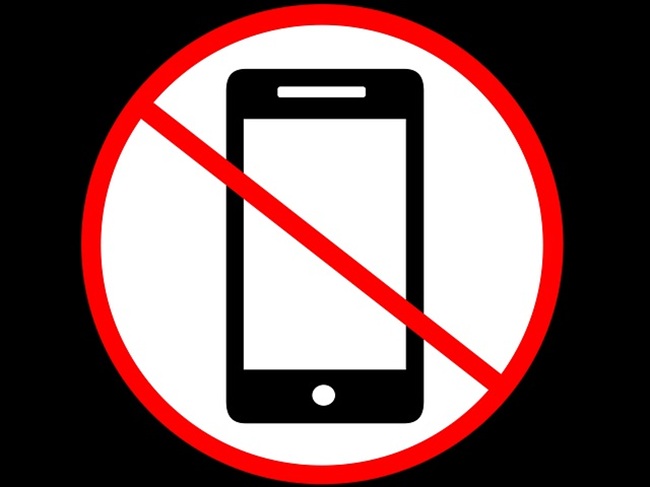It’s time to ban cellphones in schools.
Helicopter parents need to let go so their children can learn and grow.
Public schools in Massachusetts once again started the school year without guardrails for cellphone usage in school.

While the Massachusetts House considers the pros and cons of the legislation passed by the state Senate, the negative mental health effects of cellphones in schools continue to plague students’ ability to learn and socialize in classrooms across the state.
The issue holding back this critical protection for students? A new generation of parents are demanding a constant lifeline to their children, unaware of the detrimental social impacts of cellphone addiction that teachers are witnessing firsthand.
The anxiety of parents is impacting the tranquility of schools. The political balance of limiting digital distractions and cyberbullying in K-12 schools with parents’ demands to contact their children during the school day has resulted in a patchwork of district-level decisions by school leaders. Districts that have implemented cellphone bans have witnessed immediate improvements in students’ communication, socialization, and academics. They have also experienced pushback and outrage from parents.
We do not know the long-term impacts of online activity on children’s brain development. And we may never have absolute, conclusive data on the brain impacts of screen use. But there is a continuum of research outlining two increasingly unnerving data points: Greater smartphone usage by students results in higher rates of depression and poor academic performance, and students are increasingly using their cellphones more during the school day.
The desire for constant digital contact with a child is a modern extension of “helicopter parenting.” The excessive supervision of parents has already shrunk the boundaries of neighborhood play, redefined sleepovers, and cast aspersions on vaccines. Now, the need to constantly contact a child has become a flashpoint in school board meetings and parent-teacher conferences across the country.
Parents need to ask themselves whether this truly serves their child’s best interest. And the Legislature needs to empower school administrators to turn off the phones in favor of engaged, safe, and independent learning.
The job of educators to implement health-conscious environments is not a new responsibility. For decades, parents have relied on schools to educate their children in nonacademic areas where they lack expertise. Sexual education, nutritional health, and digital literacy are examples of school-based education provided at the local level over the previous decades, which were put into place to counter growing societal trends in sexually transmitted diseases, obesity, and internet privacy issues impacting a vulnerable population.
Many of these educational programs have state-sponsored support. Cellphone usage is the next frontier of this designation and should be incorporated into state law to save a generation of students biologically addicted to their screens.
We cannot wait 10 years for conclusive data on the impacts of screen use on dopamine receptors to tell us what educators already know. We are at an inflection point in how Generation Alpha develops focus, resilience, and social skills. Time is wasting to protect our students from the generational disease of cellphone addiction.

There are too many mental health problems, plummeting grades, and increasing cyberbullying trends to allow further delay. To save the next generation of students, Massachusetts must enact a bell-to-bell cellphone ban.
Elizabeth Englander is executive director of the Massachusetts Aggression Reduction Center at Bridgewater State University.

CommonWealth Voices is sponsored by The Boston Foundation.The Boston Foundation is deeply committed to civic leadership, and essential to our work is the exchange of informed opinions. We are proud to partner on a platform that engages such a broad range of demographic and ideological viewpoints.
